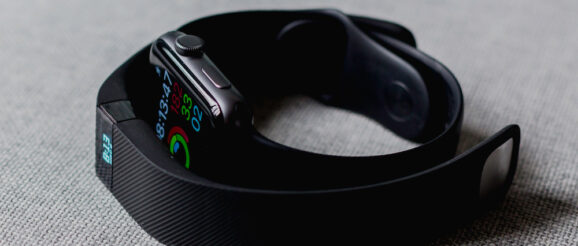Driving Innovation in Health Systems

Technologies are continually evolving: new devices, appliances, and functions appear almost every day, making this world a better place.
The same is within the healthcare industry, which has managed to move away from the standard concept of waiting in the hallway. We are all seeing rapid growth in innovation.
Today’s healthcare consumers want more than standard terms. This is where healthcare app development helps move away from the traditional doctor-patient relationship.
We invite you to learn more about some ideas for secure mobile applications for healthcare and learn more about this niche’s main trends.
Healthcare App Ideas That Can Inspire You
These statistics show that the Google Play library has over 43,000 medical applications. This means that the idea of creating a healthcare application has inspired many.
On the one hand, this is good because it is in demand, but you will also be dealing with competition.
We can still implement many ideas to become more flexible and prevent the decline of health conditions. Let’s overview some of them.
COVID-19 Alert App
Apple and Google developed a secure and private coronavirus contact tracing implementation on iOS and Android. It allows citizens to report positive COVID-19 test results and be notified if they’ve been exposed to the virus.
By adopting the Exposure Notification API, the app uses Bluetooth to exchange random identifiers with nearby phones and subsequently checks against a list of identifiers from people who have reported a positive test. If you test positive for COVID-19, you will receive a one-time-key with your diagnosis to enter into COVID-19.
The application asks permission to share your random codes from the last 14 days with a central server. Other phones using COVID-19 Alert check the central server periodically throughout the day. If they recorded any codes that match the central server’s codes, the app would notify the user that they were exposed.
Blood Oxygen Meter App
The Blood Oxygen app allows you to measure your blood oxygen levels on demand right from your wrist to get an idea of your overall well-being. Blood oxygen level is the percentage of oxygen that red blood cells carry from your lungs to other parts of your body. Knowing how well your blood is at this vital task will allow you to better understand your overall well-being.
Most people have 95-100% oxygen levels in their blood. However, some people live with blood oxygen levels below 95% without any discomfort. Oxygen levels are expected to drop during sleep, and some users may get values below 95%.
The pulse oximeter emits two light waves of different wavelengths – 660 nm (red) and 940 nm (infrared) – that shine through the skin and determine the blood’s color.
The darker it is, the more oxygen it contains, and the lighter it is, the less oxygen it has. Then the necessary calculations are made, and the user receives the result of the saturation level. That is, a heart rate monitor and a photodetector are needed for measurement. And the software component allegedly offered is only required for data interpretation.
Blood oxygen measurement promises to be a new trend among wearable electronics users. In any case, now, more and more manufacturers are equipping their smartwatches with tools that determine saturation.
Smart Blood Pressure
It is a great way to manage blood pressure records and record, track, analyze and send blood pressure data using your phone, so you can always have the necessary medical data at your fingertips. It will be easier for you to monitor your health.
Record your systolic and diastolic blood pressure readings, pulse, and weight. Body mass index (BMI), pulse pressure (PAP), and mean arterial pressure (MAP) are calculated automatically. You can now turn weight control on or off.
Quickly add notes (ex “before dinner”) and measurement data (ex “sitting position”, “left arm”) using labels.
Application With An Air Purity Sensor
The first step to change is realizing what you can’t see with the naked eye: the air we breathe every day. The app can be synchronized with the device to measure temperature, humidity, CO, CO2, and PM2.5 particles.
The device uses them to determine the level of air pollution. It would be convenient if the device could be connected to a smart home and controlled through a smartphone’s proprietary application.
It would be convenient to have a section with a map to see the situation in different cities. A unit with cities’ rating by air pollution can be useful, for example, for those who are planning a trip.
App For Tracking Sleep
For most of us, waking up and getting out of bed is the hardest thing to do every day. Your phone and smartwatch work together to track your sleep at night. And when the app detects the lightest phase of your sleep, it activates an alarm to help you feel less sleepy when you wake up.
You can set a sleep goal and track if you’re falling behind every week. The app also tracks your sleep quality, so you can make adjustments and improve it. One more handy feature will be if the app detected when the user snores, and the watch vibrates slightly to encourage the user to move and stop snoring.
Sound Level Meter
A simple, user-friendly, and understandable sound level meter – may not replace the corresponding device. Still, it will help you assess the situation as a whole, for example, understand how noisy your office is.
The interface may be implemented with special buttons to start and stop recording to estimate the noise level, save it to the archive, and view the existing records. The noise level can be displayed in numbers with their significations.
